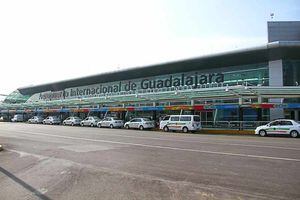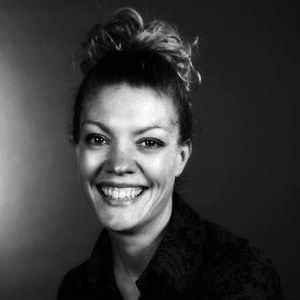Ex-Shropshire councillor sues airline over 'turbulence brain injury'
A former Shropshire councillor and lecturer at the county's agricultural university is suing the world's biggest airline for injuries he said he suffered during a flight.

Dr Maxwell Winchester claims he suffered a brain injury while on board an American Airlines flight from Mexico in February which was hit by turbulence.
The academic, who emigrated from the UK in 2010 and now lives in Melbourne, Australia, is suing the airline and said in legal papers filed this week that, while he initially declined medical help, he soon became woozy and airline staff should have realised he needed medical attention.
The 44-year-old, who was previously a senior lecturer at Harper Adams University near Newport, was returning from a work trip in Guadalajara, Mexico, on February 27 when his flight to the American state of Arizona hit a thunderstorm.

Dr Winchester, who now lectures in marketing at Victoria University, said the turbulence was "violent" and caused him to lose consciousness twice.
Before he emigrated, Dr Winchester represented the Bagley ward on the former Shrewsbury and Atcham Borough Council and the Quarry and Coton Hill ward on Shropshire Council.
American Airlines were unavailable for comment when contacted by the Shropshire Star.
Dr Winchester had been en route to Arizona, where he was due to board a connecting flight to Australia where he now lives with his young family.
The father-of-two said he has developed a brain injury similar to that suffered by babies who have experienced shaken baby syndrome.

His wife, Tiffany, is also suing the airline for shock after she saw her husband disembark from the aeroplane disorientated and distressed, which she has said led to her developing depression and other mental symptoms.
Dr Winchester lodged legal papers with the Victorian Supreme Court on Thursday seeking recompense from the airline.
He said: "I hope that by pursuing legal action the airlines will rethink their processes in dealing with turbulence. Flight attendants need to realise that each passenger should be medically checked before they leave the aircraft if there has been an episode of turbulence."
But he is unsure whether other passengers from the flight are pursing legal action as they came from all over the world.
"I was the only Australian on the flight," he said. "There were others who suffered injuries but they were from elsewhere in the world. The lady sitting next to me was also hurt during the flight."
He said he has suffered a number of injuries as a result of the turbulence, the most serious of which could have caused him to develop a fatal brain haemorrhage.
"When we took off we went into the clouds and hit a dry thunderstorm, which is when there is no rain, but you could see the turbulence in the clouds," he said. "The turbulence was terrible but the pilot managed to fly above it. I lost consciousness twice and came to covered in perspiration. We thought the pilot was going to try and fly back to the airport to land but he didn't.
"I had slurred speech when I got off the flight in Arizona.
"Since then I have developed personality changes and have experienced a number of other problems including neck, head and back injuries, whiplash, concussion, severe headaches, post-concussive syndrome, tinnitus, vision problems and mental health issues."
Dr Winchester said he could not work, drive long distances or cycle for three months and can now only work part time, and that the incident traumatised his wife and children, Alexander, eight and 10-year-old Rhiannon.
"I am a lot better than I was," he said. "Initially I had to take three months off work and there was uncertainty as to whether I would ever be able to return. I am now back part time but the doctors say that I need another six months rehabilitation."
His wife is also suing the airline, claiming nervous shock and mental injuries, including insomnia, depression and panic attacks, over her husband's injuries.
"There was all the uncertainty as to whether I was going to go back to work and it has all made my wife terribly ill," he added.
